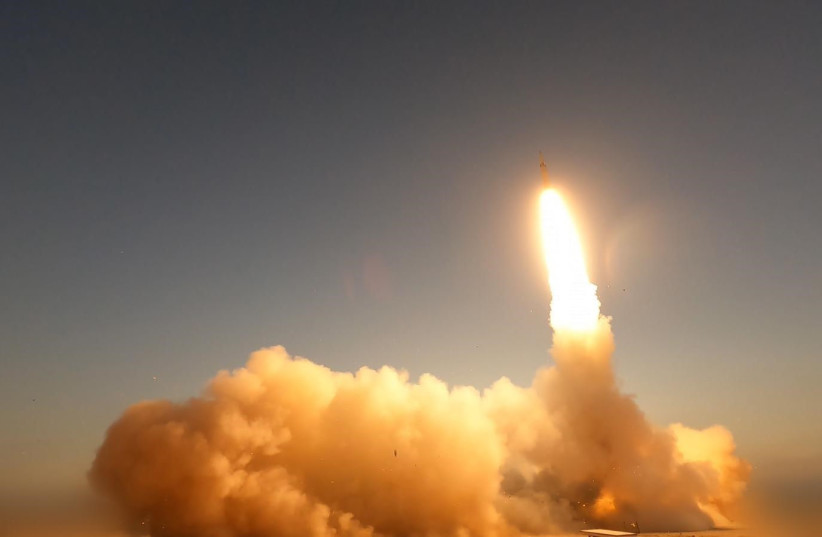Prime Minister Benjamin Netanyahu has reportedly asked the IDF for "potential target options" for an Israeli attack on Iran, according to The Washington Post on Monday, citing Israeli sources.
According to the report, the targets include an Iranian facility in Tehran or a cyberattack.
Halevi: Iranian attack will be met with Israeli response

In a visit to the Nevatim base on Monday, IDF Chief of Staff Herzi Halevi said that the Iranian attack which was carried out early Sunday morning will be met with an Israeli response, according to Israeli media.
The Nevatim base sustained minor damage following the Iranian attack.
On Monday, The Jerusalem Post reported that within the corridors of Israel's power, a critical internal debate rages on concerning the timing and manner of a response to recent Iranian aggressions. As Israel faces this formidable foe, with discussions ongoing in both the war cabinet and the IDF, the stakes couldn't be higher. Iran, with its significant population, vast land, and burgeoning nuclear program, represents not just a transient challenge but a long-term existential threat. Israeli leaders are thus caught in a strategic bind, balancing the urgency of immediate action to restore deterrence with the risks of escalating into a broader conflict.
Amid this backdrop, Prime Minister Netanyahu, alongside key figures like Defense Minister Yoav Gallant and IDF Chief of Staff Maj.-Gen. Herzl Halevi deliberated on the optimal strategy to counter Tehran's bold maneuvers. The debate is deeply complex, colored by recent memories of conflicts and shaped by the varied perspectives of senior military and political leaders. Some advocate for swift, decisive action to signal strength, while others urge patience, suggesting that waiting might draw further international support or create more strategic advantages.
The implications of these decisions extend beyond immediate military tactics; they involve intricate geopolitical considerations, factoring in the looming US presidential elections and Israel's political dynamics. Any move against Iran could redefine the future of Israeli-Iranian relations, potentially altering regional alignments and affecting global diplomatic relations. As such, the discussions today are not just about how Israel will respond but about shaping the landscape of Middle Eastern politics for years to come.
Early Sunday morning Iran launched some 350 drones and missiles towards Israel, while Iran's proxies in Lebanon, Syria, Iraq and Yemen also joined the attack.
On Sunday morning, IDF Spokesperson R.-Adm. Daniel Hagari said 99% of the aerial threats had been shot down. He also noted that almost none of the 200 drones and none of the 30 cruise missiles had crossed into Israeli territory.
Out of the 30 cruise missiles that had been launched, 25 were shot down by Israel. Hagari added that out of the 130 ballistic missiles which had been launched, only a few penetrated Israeli airspace.
The international community, led by allies such as the UK, Germany, and France, has urged Israel to exercise restraint. The European Union's foreign policy chief emphasized the region's precarious situation, advocating for de-escalation to avoid further conflict. British Foreign Secretary David Cameron acknowledged Israel's right to defend itself but recommended a strategic response that avoids direct retaliation. French President Macron and other European leaders echoed this sentiment, emphasizing diplomacy over military action. Meanwhile, the U.S. recognized the joint defense efforts that intercepted most of the attacks, suggesting that Israel viewed this as a victory without escalating further. This call for caution reflects widespread concern about the potential for this conflict to widen, affecting regional stability and international security.
